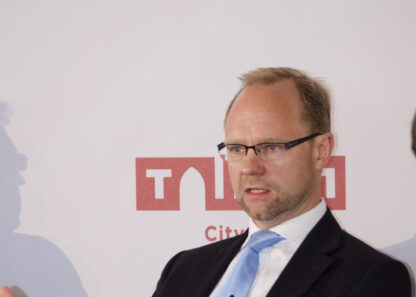Government bonds to create liquid capital market in Estonia, EBRD director says
FEIF2014 plenary session: How are the markets important to Estonia developing and how is the cooperation between Estonian and those markets evolving?
Liquid and versatile capital markets will boost the economy and government should take the lead by issuing government bonds, André Küüsvek, Director of Local Currency and Capital Markets Development at EBRD said.
We just celebrated the 10th anniversary of EU enlargement, the first part of which saw a massive convergence growth for new countries. After 2008 the situation changed and today the GDP index in real terms for the most new member countries is smaller than in 2007, Küüsvek said at the Finance Estonia International Forum held today in Tallinn.
Küüsvek said that each of those countries were financing growth on imported capital through foreign banks. The FDI was at 5-7% of GDP in average with strong portfolio investments. Today, FDI is still positive at 2-3%, but portfolio investors are now leaving and the flow negative. The bank lending that used to grow 35% annually, is now flat.
“My bottom line is that we need to find new ways of finances, for example developing bond market,” Küüsvek said. For example Poland has been a success story that came through the banking crises with 20% higher GDP index because of well-developed domestic capital market including pension funds, stock market etc.
The government in Estonia has currently a government debt of 10% which should be increased to 15-20% by issuing bonds, Küüsvek said. That would create liquidity in the market and create needed benchmarks. Large state-owned companies could then follow which can bring new breathing to the stock exchange with minority stakes listed, he added.
At the same time it is important to keep attracting new capital from abroad. The question is how to do it: take for example Romania, which benefitted from the momentum of capital markets by presenting its fast growth story to the world, Küüsvek, who has been with the EBRD for 18 years, added.


